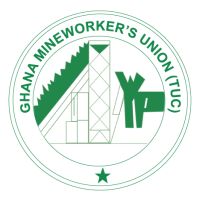Find Water and Sanitation expertise in Ghana
- Water supply
- Developments
The main source of fresh water in Ghana is the River Volta system basin, including the Oti, Pru, Daka, Sene, White Volta and Black Volta Rivers, together covering 70% of the country. The remainder is covered by either the south-western river system or the coastal river system watershed. Additionally, the Volta Lake, one of the world’s largest artificial lakes, adds to the overall renewable water supply of around 53.2 km³ per year, of which 30.3km³ are internally produced (2012).
The water and sanitation sector in Ghana has seen major reforms since the 1990s, aimed at tackling weaknesses. This saw the creation of an independent regulatory agency, increased private sector participation, decentralisation of rural supply to 138 districts, and increased community participation in the management of rural water system, which has all been overseen by the Ministry of Water Resources, Works, and Housing. The Environmental Health and Sanitation Directorate within the Ministry of Local Government and Rural Development have taken on responsibility for sanitation in the country. One difficulty which the sector faced was the presence of multiple organisations with overlapping responsibilities, which led in 2008 to the establishment of the National Water Policy and the National Environmental Sanitation Policy in order to consolidate a comprehensive sector strategy.
The Ghana Water Company Limited, attached to the Ministry of Works and Housing, is responsible for the provision of water supplies in Ghana for all purposes, both domestic and industrial. The Water Resources Commission is responsible for coordinating water policy in Ghana. The Environmental Protection Agency advises the Minister for the Environment on all aspects of the environment and especially controlling the generation, treatment, storage and transportation of industrial waste.
The two main recently completed projects are the Kumasi Water Supply Project (completed in 2009) and the Koforidua Water Supply Project installed 23,000 consumer water meters and has made potable water available to towns such as Okrase, Otoko, Ada, Effiduase, Jumapo, Asokore and Suhyien
Access to improved water sources has benefitted from reforms in the sector, particularly in rural areas. Urban access to improved water sources has risen from 87% in 2000 to 91% in 2010, while access in rural areas has risen from 58% to 80%. Less progress has been made in relation to improved sanitation facilities. In 2000, 16% of the urban population has access to improved facilities whilst 6% of the rural population did; by 2010 this had risen to 19% and 8%, respectively. Open defecation remains a challenge to improved sanitation – in 2010, 6% of the urban population only had access to open defecation, whilst the figure in rural areas was 33%. In general the country has experienced a continuous increase in the proportion of the population that uses improved drinking water and improved sanitation between 1990 and 2010, but the same cannot be said for improved sanitation.
The state continues to focus on delivery of community point sources through the multi-sectoral Community-Based Rural Development Project, while delivery of piped schemes in small towns will be maintained under the Small Towns Water Supply and Sanitation Project. The International Development Association aims to encourage the development of capacity of small and medium enterprises in the water sector to respond adequately to local demand. Additionally, the World Bank aims to provide cheaper latrines and implement sanitation interventions focused on sustained community-level marketing.
| Water and Sanitation organisations in Ghana | |
|---|---|
| Ghana Water Company Ltd |
|
| IceCool Water |
|
| Jigsaw (Solar Water Heating) |
|
| Purified Water Supplies Co. Ltd |
|
| Waterpipes Engineers Dan & Dac Ltd |
|
| West African Water Initiative (WAWI) |
|







